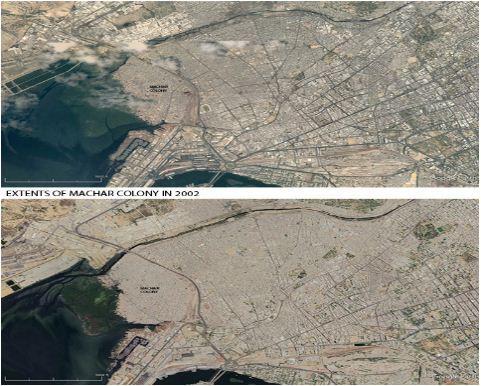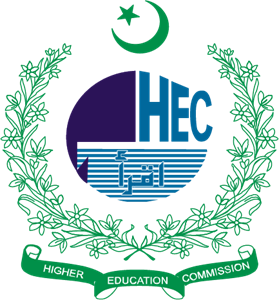Culture of Poverty and Sustainable Development: Case of Machar Colony in Karachi
Abstract
 Abstract Views: 0
Abstract Views: 0
This paper analyzes the intrinsic relation between two key indicators of development; sustainability and poverty. It specifically focuses on culture of poverty and sustainable development. Sustainable development envisions a balanced growth of human societies, meeting the current needs without compromising the required natural resources for future generations. The idea of culture of poverty is put forward in social theory, and the idea revolves around ideals of people experiencing poverty and how it may play an important role in preserving their disadvantaged situation, thus maintaining a cycle of poverty across generations. They may be resistant to considering sustainable choices while taking advantage of economic opportunities. So, the question posed is whether the culture of poverty acts as a hindrance or a facilitator for sustainable development. Given that culture forms an intrinsic part of sustainable development principles, this paper reviews the case of a marginalized low-income community in Karachi, exploring the everyday choices they make within the culture of poverty and the interface they have with the larger framework of sustainable development. Case study methodology has been employed, with qualitative interviews, observation and mapping used as research tools. The results of the research reveal a sense of disempowerment that residents of Machar Colony face, leading them to focus on short-term survival rather than long-term sustainable development objectives. The prevalent culture of poverty impedes progress and development, failing to pave the path for sustainable livelihood.
Downloads
References
Berger, M. (2018, September 10). Gordon parks on poverty, the ‘most savage of human afflictions'. The NewYork Times. https://www.nytimes.com/2018/09/10/lens/gordon-parks-on-poverty-the-most-savage-of-human-afflictions.html
Biernacki, P., & Waldorf, D. (1981). Snowball sampling: Problems and techniques of chain referral sampling. Sociological Research & Methods, 10(2), 141–163. https://doi.org/10.1177/004912418101000205
Bourgois, P. (2001). Culture of poverty. In N. J. Smelser & P. B. Baltes (Eds.), International encyclopedia of the social & behavioral sciences (pp. 11904–11907). Pergamon.
Bryman, A. (2008). Social research methods. Oxford University Press.
Glasmeier, A. K., & Farrigan, T. L. (2003). Poverty, sustainability, and the culture of despair: can sustainable development strategies support poverty alleviation in America's most environmentally challenged communities? The Annals of the American Academy of Political and Social Science, 590(1), 131–149. https://doi.org/10.1177/0002716203257072
Gmelch, G., & Kuppinger, P. (1996). Urban life: Readings in the anthropology of the city. Waveland Press Inc.
Griggs, D. J., Smith, M. S., Rockstrom, J., Ohman, M. C., Gaffney, O., Glaser, G., Kanie, N., Noble, I., Steffen, W., & Shyamsundar, P. (2014). An integrated framework for sustainable development goal. Ecology and Society, 19(4), Article e49. https://doi.org/10.5751/es-07082-190449
Harvey, D. L., & Reed, M. H. (1996). The culture of poverty: An ideological analysis. Sociological Perspectives, 39(4), 465–495. https://doi.org/10.2307/1389418
Hasan, A., Raza, M., & Pervaiz, A. (January 2017). Drivers of climate change vulnerability at different scales in Karachi. Internatinal Institute for Environement and Develpement. https://www.iied.org/10805iied
Howe, L. (1998). Where is the culture in the 'Culture of Poverty'? The Cambridge Journal of Anthropology, 20(1/2), 66–91.
Human Rights Watch. (2015, June 25). Stateless at Sea: The moken of Burma and Thailand. Human Rights Watch. https://www.hrw.org/report/2015/06/25/stateless-sea/moken-burma-and-thailand
Ivo, A. (2008). Georg Simmel and the "sociology of poverty". Caderno CRH, 21(52), 171–180.
Lee, R., & Stokes, E. (2009). Economic globalization and ecological localization: Socio-legal perspectives. Wiley-Blackwell.
Lewis, O. (1966). The culture of poverty. Scientific American, 215(4), 19–25.
Matthew, R. A., & Hammill, A. (2009). Tackling resource challenges in the 21st century: Avoiding worst case scenario. International Affairs, 85(6), 1117–1128.
Perveen, S. (2004). Population growth and sustainable development. Economic and Political Weekly, 39(7), 14–20.
Qureshi, M. (2015, July 14). Education — a beacon of hope for Machar Colony's impoverished children. Dawn. https://www.dawn.com/news/1189964
Small, M. L., Harding, D. J., & Harding, M. (2010). Reconsidering culture and poverty. The Annals of Amercian Academy of Political and Social Science, 629(1), 6–27. https://doi.org/10.1177/0002716210362077
Spencer-Wood, S. M., & Matthews, C. N. (2011). Impoverishment, criminalization, and the culture of poverty. Historical Archaeology, 45(3), 1–10. https://doi.org/10.1007/BF03376843
Sustainable Development Solutions Network. (2012). A framework for sustainable development. http://www.jstor.com/stable/resrep16082
Thomas, A. (2006). Design, poverty, and sustainable development. Design Issues, 22(4), 54–65.
Valentine, C. A. (1968). Culture and poverty. Critique and counter proposals. University of Chicago Press.
Wirth, L. (1938). Urbanism as a way of life. The American Journal of Sociology, 44(1), 1–24. https://doi.org/10.1086/217913
Yoko, H. (2006). Redefining “Otherness” from Northern Thailand: Introduction: Notes towards debating multiculturalism in Thailand and beyond. Southeast Asian Studies, 44(3), 283–294. https://doi.org/10.20495/tak.44.3_283

Copyright (c) 2024 Suneela Ahmed

This work is licensed under a Creative Commons Attribution 4.0 International License.
JAABE follows an open-access publishing policy and full text of all published articles is available free, immediately upon publication of an issue. The journal’s contents are published and distributed under the terms of the Creative Commons Attribution 4.0 International (CC-BY 4.0) license. Thus, the work submitted to the journal implies that it is original, unpublished work of the authors (neither published previously nor accepted/under consideration for publication elsewhere). On acceptance of a manuscript for publication, a corresponding author on the behalf of all co-authors of the manuscript will sign and submit a completed Copyright and Author Consent Form.
Copyright (c) The Authors





